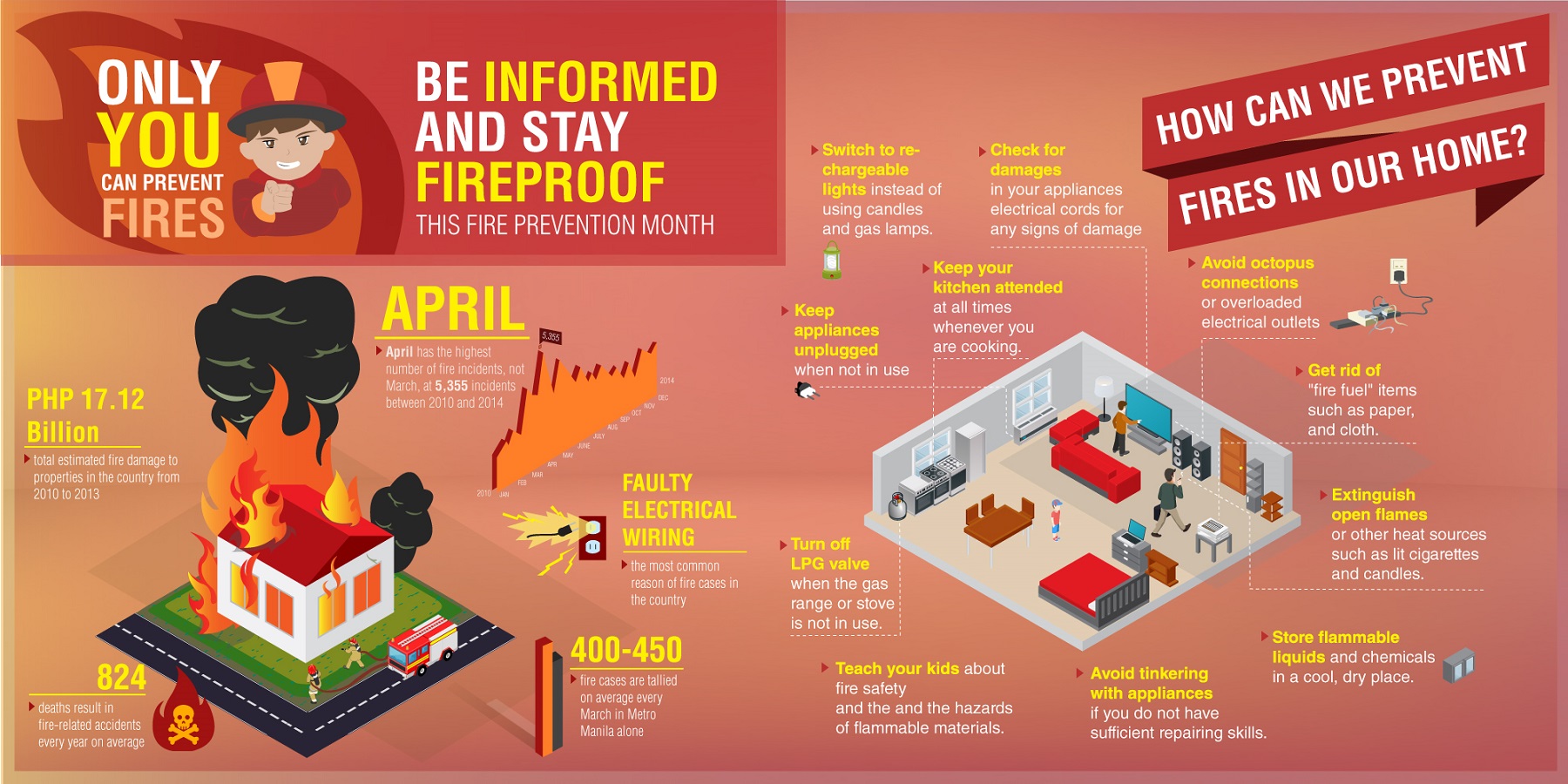Fire Safety Tips: These Household Items Should Be Kept Away From Each Other At All Times
2 min read
Now that summer is here, you have to batten down the hatches as fire-related incidences are on the rise—while, according to the Philippine Statistics Authority, the number of firemen in the country have continuously decreased.
But as Bureau of Fire Protection (BFP) Region 6 Regional Director Eleuterio Iturriaga emphasizes, fire prevention is a job not only for firefighters; there has to be an active involvement of all citizens.
The BFP says the most common causes of fire are faulty wiring, incendiarism, unattended open flames, liquefied petroleum gas (LPG), fireworks, spontaneous ignition, static electricity, and careless smoking.
In view of Fire Prevention Month, there are some facts you need to know to virtually fireproof your home. Below are extremely flammable items that can be found in your home that you should be aware of.

In the kitchen: Disinfectant sprays, drain cleaning agents, aerosol sprays, LPG, dishwashing agents, cooking oil, non-dairy creamer, oranges, powdered sugar, garlic, bacon.
In the bathroom: Nail polish, nail polish remover, hairspray, body mists, sunscreen, insect repellant, bathroom cleaning agents, alcohol, liquid medicines, ammonia.
In the laundry area: Stain removers, detergent, bleach, fabric conditioner
In the garden and garage: Pesticide, paint, butane, motor oil, gasoline, thinner, varnish, turpentine
In other parts of your home: Naphthalene balls, shoe polish, ping pong balls
In order to prevent fire in your home or office, these household items should be kept away from each other at all times:
1. Avoid putting storage near or on top of the stove.
Keep combustibles at least three feet away from the gas stove. If you are preparing meals, make sure you are keeping an eye on the induction cooker, microwave oven, oven toaster, coffee maker, and other appliances.
2. Space heaters/HVAC should be kept away from curtains and furniture.
Aside from keeping flammable objects away from HVAC systems, you should also plug it directly into an outlet instead of extension cords to avoid electrical current overload.
3. Do not store liquid flammables near an ignition source.
Faulty wiring accidents could easily turn into a house fire when added with fluid combustible elements. Instead of storing paint or gasoline in the garage, keep these flammables outside the house or inside special safety containers.
4. Place your extension cords in a traffic-free area.
Frequent foot traffic, for instance, could inflict impairments to extension cords, which could be a potential for fire. Place the cords on the edges of the wall and tape them properly.
5. Keep piles of leaves away from your home.
Dried leaves, when exposed to extreme heat of the sunlight, can cause fires. Dispose of them properly in the garbage.
6. Keep your kids and pets away from frayed cords and damaged power outlets.
Without supervision, kids might accidently play with extension cords or switch, which can cause a fire or compromise their safety. Cats’ and dogs’ activities such as urinating and chewing on cords unintentionally can also wreak havoc to your home.
7. Do not place laptops or other electronic gadgets on the bed or under the pillow.
Some handy gadgets are prone to overheating. For your safety, keep them away from fabrics and other combustible items.
